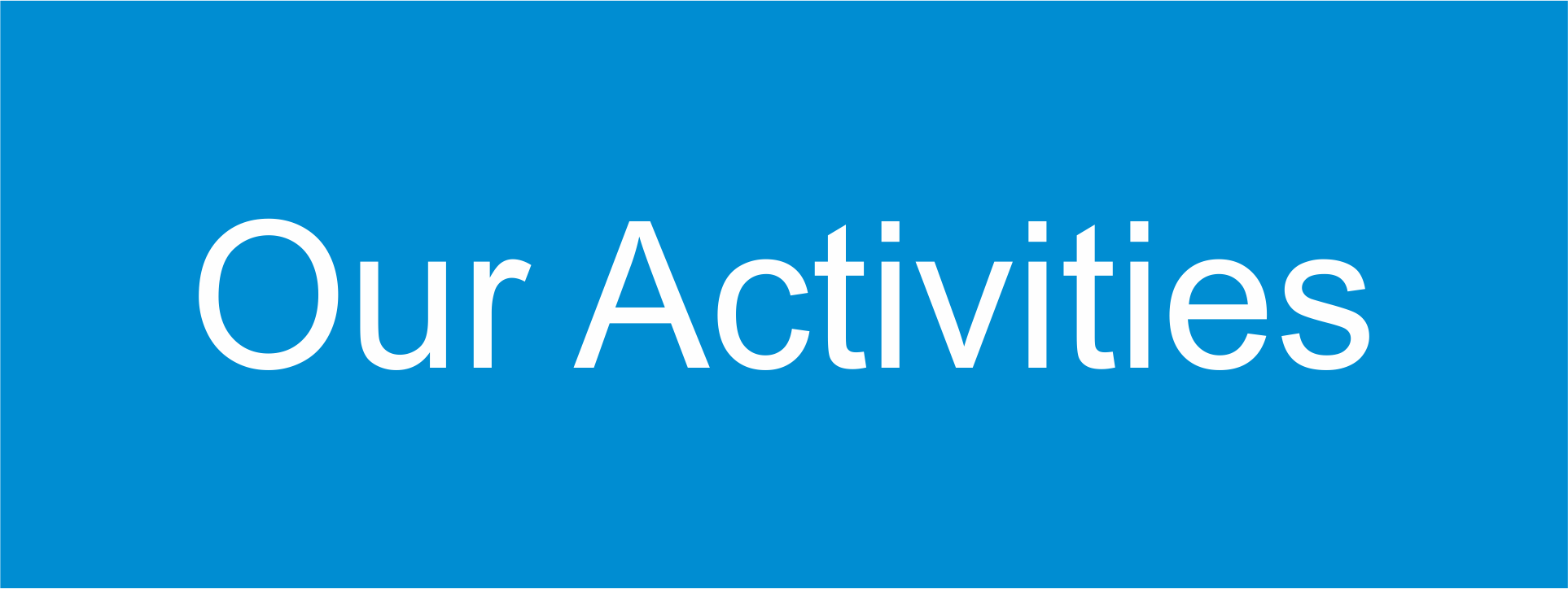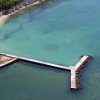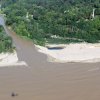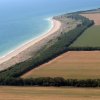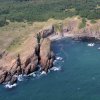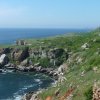Center for Coastal & Marine Studies
HAPPY BIRTHDAY TO US: CCMS TURNS 6!
On 9 of March 2024 the Center for Coastal and Marine Studies (CCMS) celebrates its sixth anniversary! The past six years of success, challenge, and learning has been an incredible experience! We have accomplished so much, but the best is yet to come!
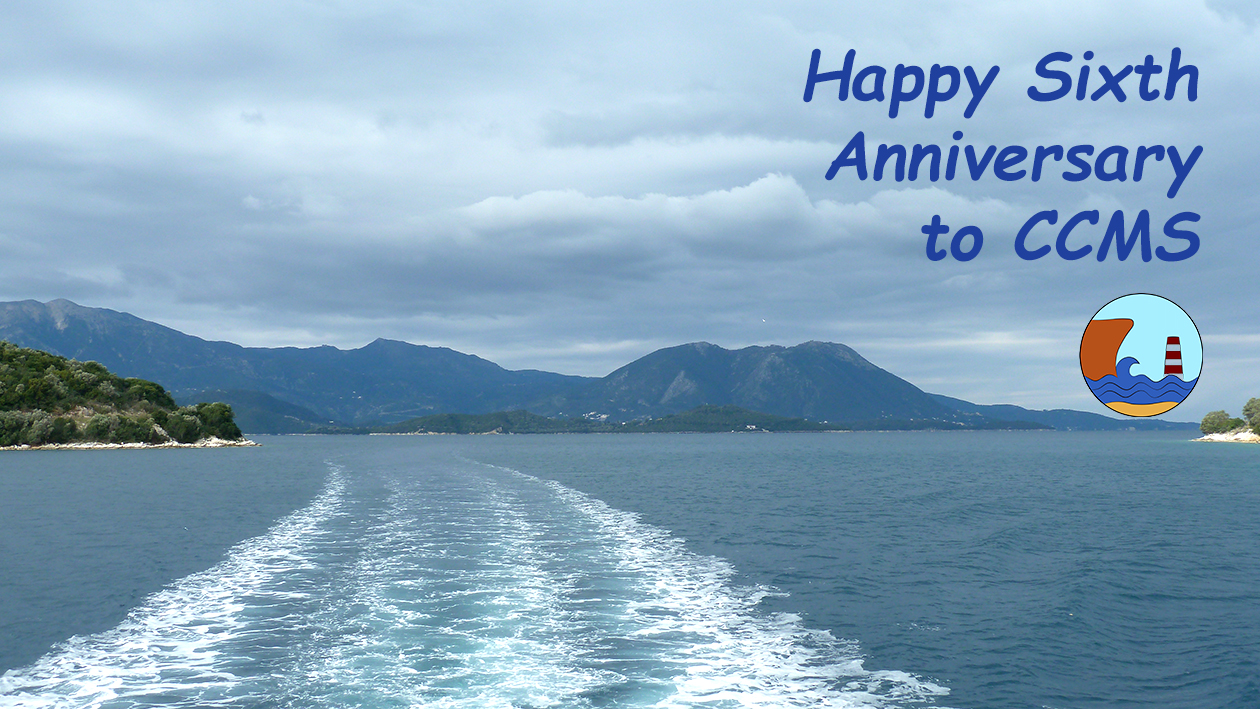
CCMS was born with the fundamental goal of developing and promoting science, research, knowledge transfer, and innovation technologies in the Black Sea and in the World Ocean by bringing together science, environment, expertise, stakeholders and policy making. Our activities comprise a vast range of coastal and marine research (studies and surveys in the field of modern coastal and marine processes), as well as support to the implementation of the EU coastal and maritime Strategies and Directives (MSP, ICZM, Blue and Circular Economy, European Green Deal, EU Mission: Restore our Ocean and Waters, etc.), by developing scientific basis and providing knowledge and expertise, project participation, networking and consultancy.
CCMS is directly advised by an Advisory Committee (AC), which involves seventeen distinguished and outstanding scientists and experts from different institutes, universities and organizations all around the globe (Australia, Belgium, Greece, Columbia, Estonia, Germany, Italy, Poland, Romania, Spain, Turkey, United Kingdom, USA and Bulgaria). For more information on the AC members explore the AC section on our webpage: http://www.ccms.bg/en/about-ccms/advisory-committee.
Next MSP-GREEN Deliverable drops: D3.1 Sharing valuable practices for boosting the Green Deal through MSP

This D3.1 Sharing valuable practices for boosting the Green Deal through MSP created in Work Package 3 has identified valuable and capitalizable experiences of EGD integration into MSP. The study looked at the operational level of the MSP Plans of the countries of the consortium members, focusing on spatial planning measures as well as on process-related practices.
In total, 21 valuable practices were identified from the six project partner’s countries. These practices showcase how MSP processes in project partners countries aim to target climate change mitigation (A), sustainable sea-food production (C), biodiversity and ecosystem protection and restoration (D); climate change adaptation (B), fair and just transition (G) and zero pollution (F).
Read the full report at the MSP-GREEN project results page!
https://mspgreen.eu/wp-content/uploads/2024/03/D3.1_green.pdf
The 3rd Blue Horizons Newsletter is out and ready to read!
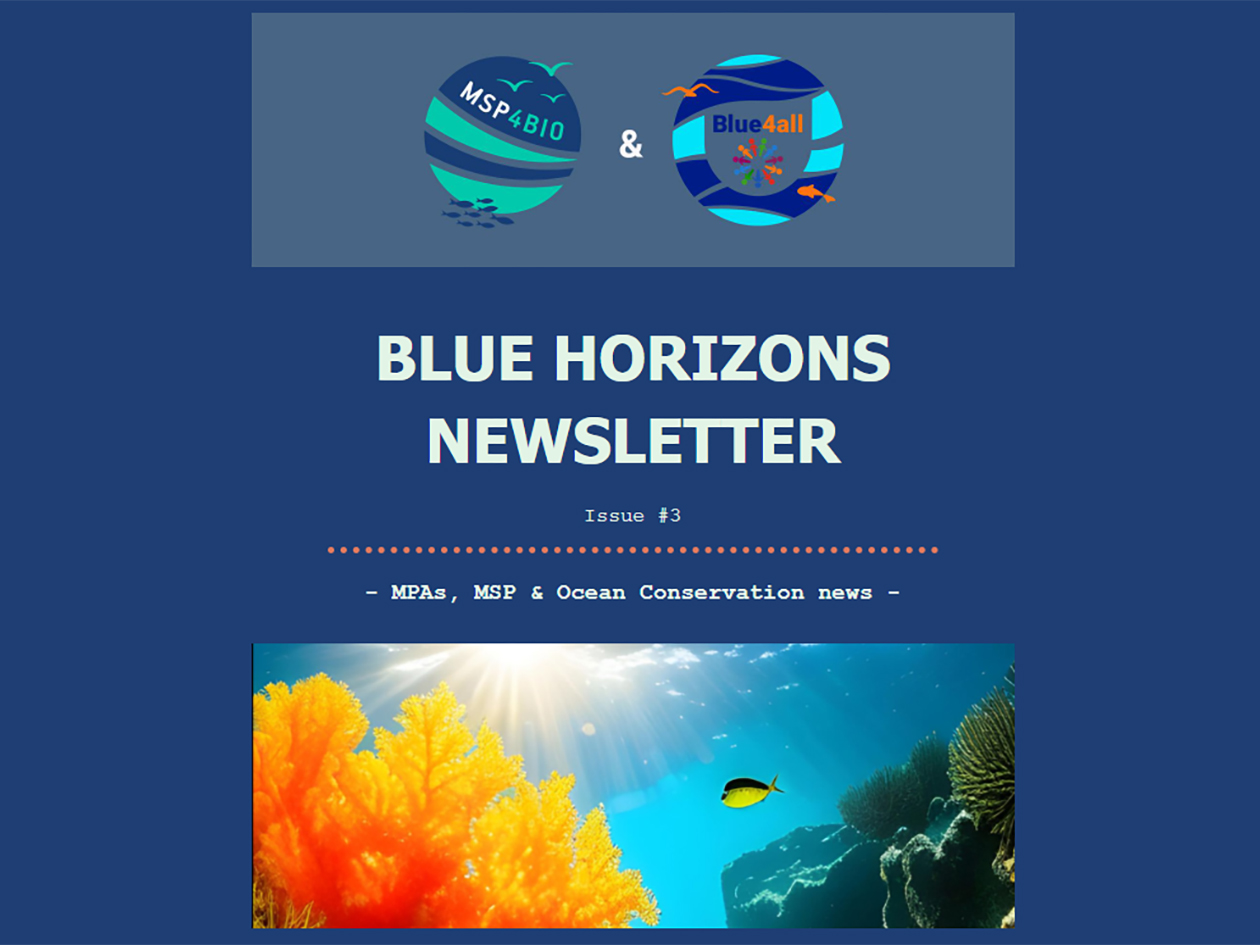
As in the first two issues of our joint newsletter, we bring to you the latest updates of BLUE4ALL and MSP4BIO projects, as well as the latest news on Marine Protected Areas (MPAs), Maritime Spatial Planning (MSP), and Ocean Conservation.
This 3rd issue introduces you with the BLUE4ALL's recent General Assembly in Lecce, Italy, where intellect and progress converged. The issue also explores MSP4BIO's latest innovation, the Data Compilation App, designed to make marine data accessible and easy to navigate. The events section is packed with opportunities, from joining the EU Blue Parks Community workshop to the upcoming 2nd Mission Arena to be held in Latvia and for which the registration is already open.
External news brings you the launch of the Mission Ocean and Waters service portal—a one-stop-shop for ocean stakeholders. Plus, don't miss the chance to apply for the MPA Awards, recognizing outstanding Marine Protected Areas contributing to #MissionOcean.
So, grab your tea or coffee, and dive into the latest updates in the world of Blue Horizons!
MSP4BIO at the IV Webinars of the MED-MSP-CoP: Sharing knowledge as key for advancing MSP practice
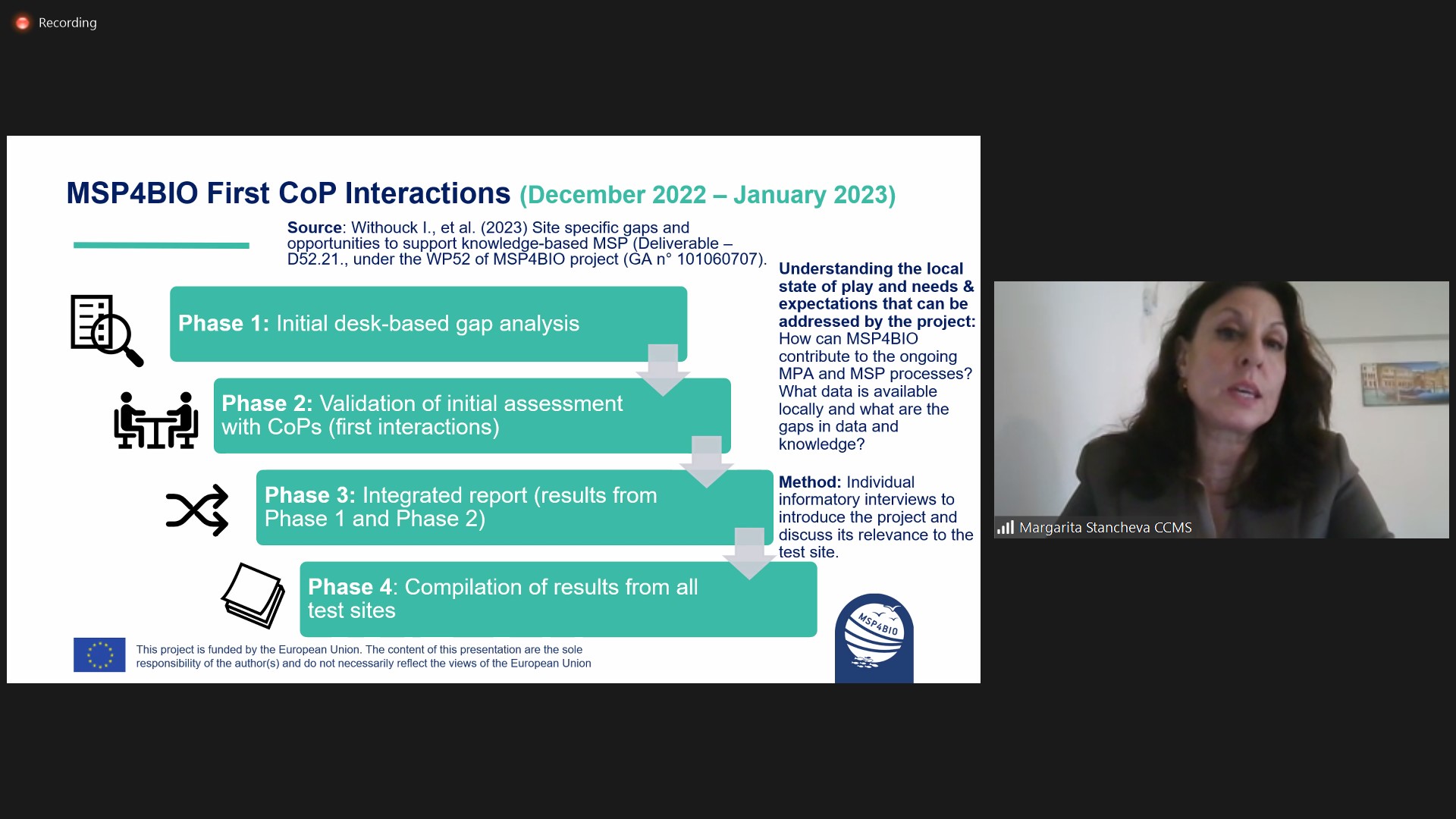
On February 13th, Margarita Stancheva (CCMS) presented the MSP4BIO project at one of the technical webinars that MED-MSP-CoP organises on a regular basis.
The aim of these webinars is to:
• Disseminate valuable practices on MSP in the Mediterranean
• Illustrate how such experiences tackle some of the key challenges addressed by the MED-MSP-CoP, including “MSP for MPAs” and “MSP as key enabler for SBE strategies and initiatives”
• Provide a regular opportunity for an open discussion on MSP-related issues of common interest for the MED-MSP-CoP experts
• Invite any other experts in participating to the discussion and more in general to join the MED-MSP-CoP.
In this event, several points to be capitalised were highlighted, such as:
- MSP4BIO process of CoPs engagement – a series of interactions to facilitate exchange, build ownership and ensuring uptake of developed MSP4BIO tools in the test areas and beyond, keep their interest and show the added value of being a CoP member.
- SeaSketch tool and participatory mapping survey for trade-off analysis – the step-by step methodology has the potential to be replicated/adapted and to enhance stakeholder interest, a robust platform, leading to important discussions and diverse feedback from the CoP members.
You can access the full presentation on the MSP4BIO website!






















